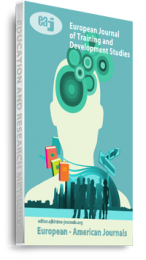For over a decade now, students’ performance in mathematics at the Junior High School leaves much to be desired. The trend in performance by students at the said level has made researchers ascertain the indicators and factors responsible for this low performance. As a matter of fact, a number of studies conducted have mentioned teachers’ beliefs and their instructional practices as one of the major factors that determines students’ performance in mathematics. This study, however, focused on finding out the effect of Junior High School teachers’beliefs and their instructional practices on the academic performance of students in mathematics. The study was conducted in the Cape Coast Metropolis in the Central Region of Ghana and utilized the descriptive survey design to explore the phenomenon in question. A sample of 31 teachers and 306 students were involved in the study. Analysis of results revealed that teachers who were involved in the study hold constructivist beliefs, however, there were discrepancies in the practices they enact in their classroom. Furthermore, there was no statistically significant effect of teachers’ beliefs and instructional practices on students’ performance. Implications for these findings to the teaching and learning of mathematics and teachers’ professional development are discussed in the work.
Keywords: : Academic Performance, Beliefs, Effects, instructional practices

